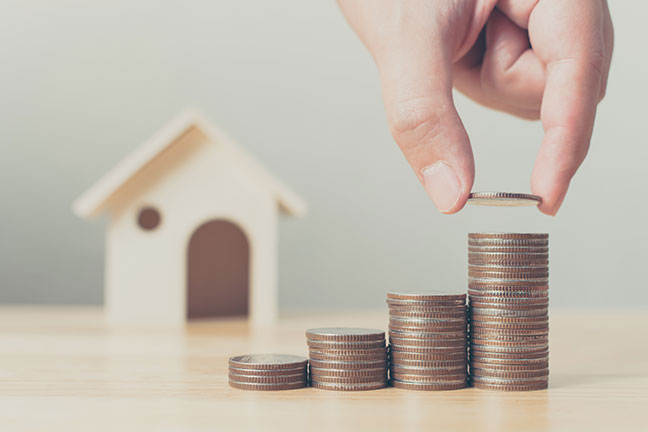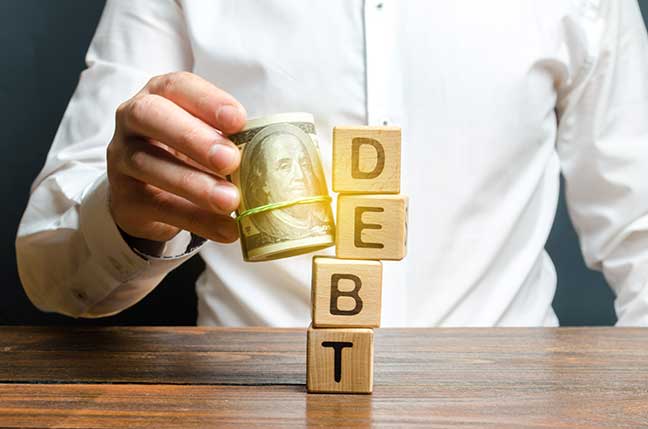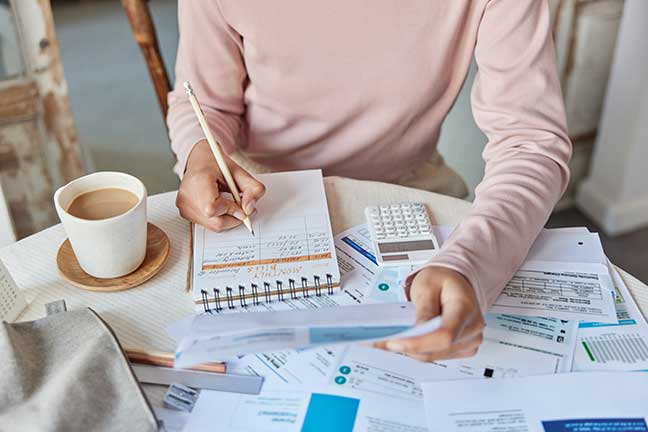So you want to get your finances in order – that’s great. But now you’re stuck trying to figure out whether to focus on saving money or paying off debt. It’s an age-old dilemma, but luckily — there’re some easy ways to determine what’s right for your situation. The most important thing is not to stress.
Take a deep breath and think about your financial goals. There’s no one-size-fits-all answer, but with some simple calculations you can choose a path that will get you to financial freedom faster without too much stress or worry. In this blog post, we’re going to be guiding you on what to focus your energy when it comes to meeting your financial goals.
Save Money or Pay Off Debt?
Paying off debt vs saving money is a tricky balancing act. On the one hand, eliminating debt frees up your cash flow and gives you peace of mind. Though on the other, having some savings provides financial security in case of emergencies. So which should you prioritize?

The Benefits of Building Your Savings
Building up your savings account has some significant benefits over aggressively paying off debt. Such as:
Emergency Fund
As mentioned, having cash on hand means you’re prepared to handle an unexpected expense like medical bills, car repairs, or losing your work or income. It’s wise to have some money set aside for unexpected expenses. A good rule of thumb is to save at least $500 to $1000, enough to cover common emergencies or 2 to 6 months of essential expenses.
Avoids High-Interest Debt
When cash emergencies come up, the only option isn’t your high-interest credit card. Your emergency savings allow you to cover surprise costs in cash without incurring expensive debt.
Financial Security
A healthy savings balance gives you peace of mind and a financial cushion. You’re able to rest easy knowing you have more money set aside for both short and long-term goals.
Opens Up More Options
With available cash, you have more freedom and flexibility in your choices. You can take advantage of investment opportunities, make a large purchase in cash, take vacations, or change jobs without going into debt.

The Benefits of Paying Down Debt
Next — tackling debt also has some benefits that are worth considering. While saving money is important for your financial future, eliminating debt is one of the best ways to improve your financial situation.
Freedom From Debt Payments
When you pay off a debt, like a loan or your credit card debt, you free up the money you were putting towards your payments each month. This extra cash in your budget means you have more flexibility and control over spending. You can put that money towards saving or other goals without debt payments looming over your head.
Reduced interest
The longer you carry debt, the more interest you end up paying. By paying off debt sooner, you avoid paying thousands of dollars in interest charges over the lifetime of the loan. The faster you pay the debt off, the less interest you pay. Making minimum payments each month or making an occasional lump sum payment can save you money in the long run.
Having Peace of mind
Finally, becoming debt-free gives you peace of mind. The stress and anxiety of owing money to creditors disappears. You have more financial security and stability without the burden of debt payments. Your financial situation feels more under control, and you can rest easy knowing you owe nothing.
5 Ways to Save money
So now that you understand the benefits of saving money vs paying debt, how do you actually do it? Let’s start with saving money — here are 5 ways to save money that can help you achieve both goals.
Trim Away Unnecessary Expenses
Find expenses to reduce, such as eating out, entertainment, and hobbies. Cook most meals at home, meal plan, borrow books and movies from the library, and find free or low-cost hobbies. Every dollar trimmed from your budget is a dollar that goes towards savings.
Buy in-season Produce
Staying on the topic of food, fruits and vegetables that are in season are usually cheaper. Buy produce that is on sale and plan recipes around those items. In-season also means more flavor! Freezing or canning seasonal produce allows you to enjoy it year-round.
Using these money-saving food tips can help lower your grocery bill by hundreds a month. Keep working at it and get better at slashing food costs over time. Your budget will thank you!
Get Rid of Credit Cards
If you have trouble controlling your spending with credit cards, cut them up or freeze them in a block of ice. Only spend what you can afford to pay off each month. Credit cards make it easy to spend more than you earn and carry debt from month to month, so limiting their use is one of the best ways to gain control of your finances.
Automate as Much as possible
Set up automatic transfers to move money from your checking to your savings account each month. The more you automate, the less you have to think about saving. You can also set up automatic payments for your minimum debt payments each month to ensure you never miss a payment. Automating your finances helps make saving money and paying off debt a habit.
Look For Ways to Earn Extra Income
Whether it’s a side gig driving for a ridesharing service, selling unwanted items online, or picking up a part-time job, any additional income you can generate will help you save more and pay off debt faster. Even earning an extra $500 a month can help make a big dent in your savings and debt repayment goals over time.

5 strategies to Pay Off Debt
Paying off debt often seems like an insurmountable challenge. However, with time and consistency, you can become debt-free by following these strategies:
Track Everything
The first step is to track your income and expenses to see how much you can put towards your debt each month. Look for expenses you can reduce or eliminate. Even small changes can make a big difference over time.
Pay off high-interest debts first
Pay down credit cards, personal loans and other debts with high interest rates first since more of your payments go toward interest charges. Once paid off, roll those payments into the next highest rate debt. This ‘snowball effect’ helps you gain momentum.
Pay more than the minimum
Pay as much as you can above the minimum payment each month. For credit cards, aim for at least 2-3 times the minimum. The more you pay, the less interest you’ll end up paying overall and the faster you’ll become debt-free.
Negotiate with creditors
Call your creditors and ask if they’ll lower your interest rate or waive certain fees. Explain your situation and your desire to pay off the balance. They may be willing to work with you to avoid default. Even a small reduction in rate can save you money.
Consider debt consolidation
Consolidate high-interest debts into a lower-interest personal loan to simplify payments and pay debt off faster. Make sure the interest rate on the new loan is lower than your existing rates and that there are no expensive fees. Pay the new loan on an accelerated schedule if possible.
Want a FREE Phone Plan to Help Save Money?
We understand saving money isn’t easy. But luckily — EASY Wireless is here to help save money! That’s right! We’re offering FREE phones to qualifying individuals.
Thanks to government programs such as Lifeline & ACP, were able to offer some incredible connectivity benefits to help you contact work, stay in touch with friends & family, download some money-saving or cash-back apps, or simply save some cash on your bill each month. here’re the benefits EASY Wireless offers:
EASY Wireless Unlimited Plan
- FREE Unlimited Data
- FREE Unlimited Talk
- FREE Unlimited Text
- FREE SIM Card Kit and Activation
- Choose to Keep Your Number or Get a New One
To start with EASY Wireless, apply online by clicking the below:
Start Saving Today!
Start Saving Today!
Or you can come to one of the EASY Wireless’s retail stores, where our customer service agent will help you apply for your benefits.


